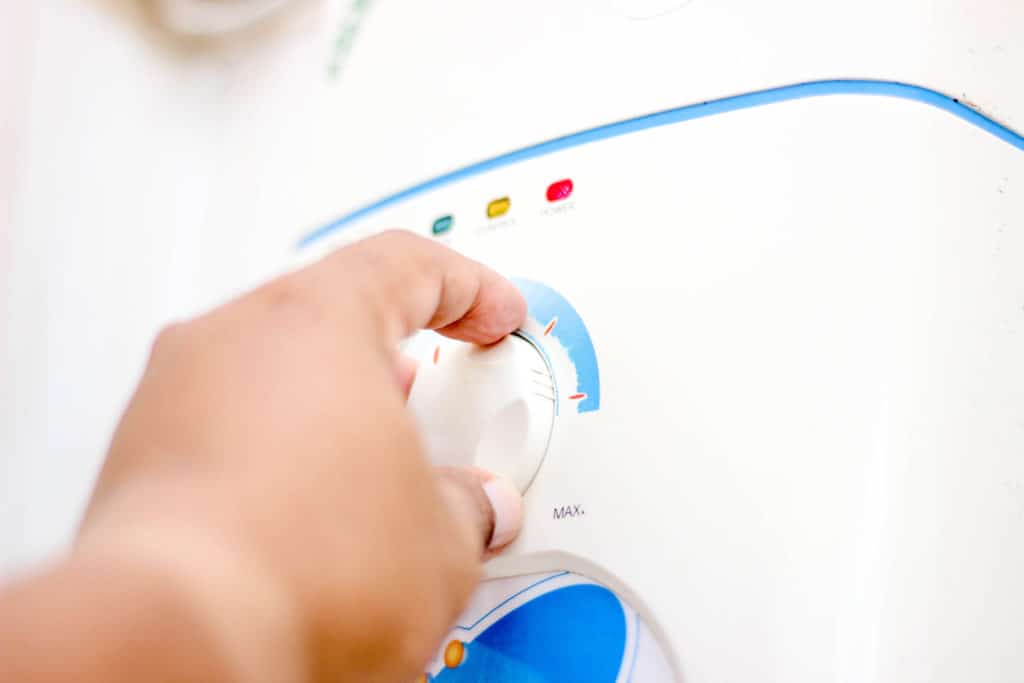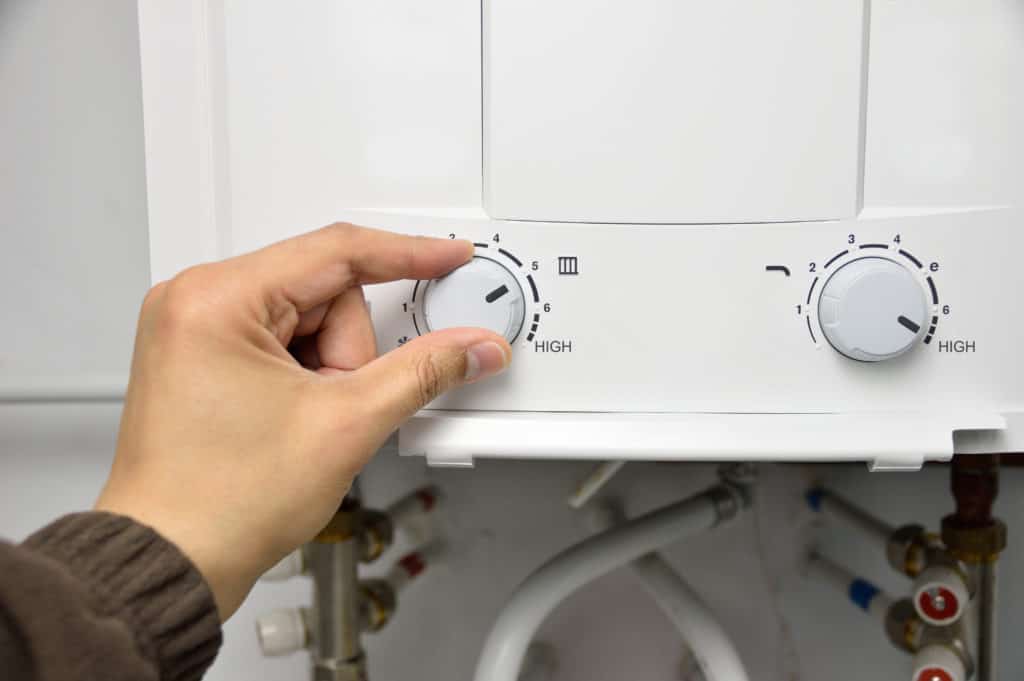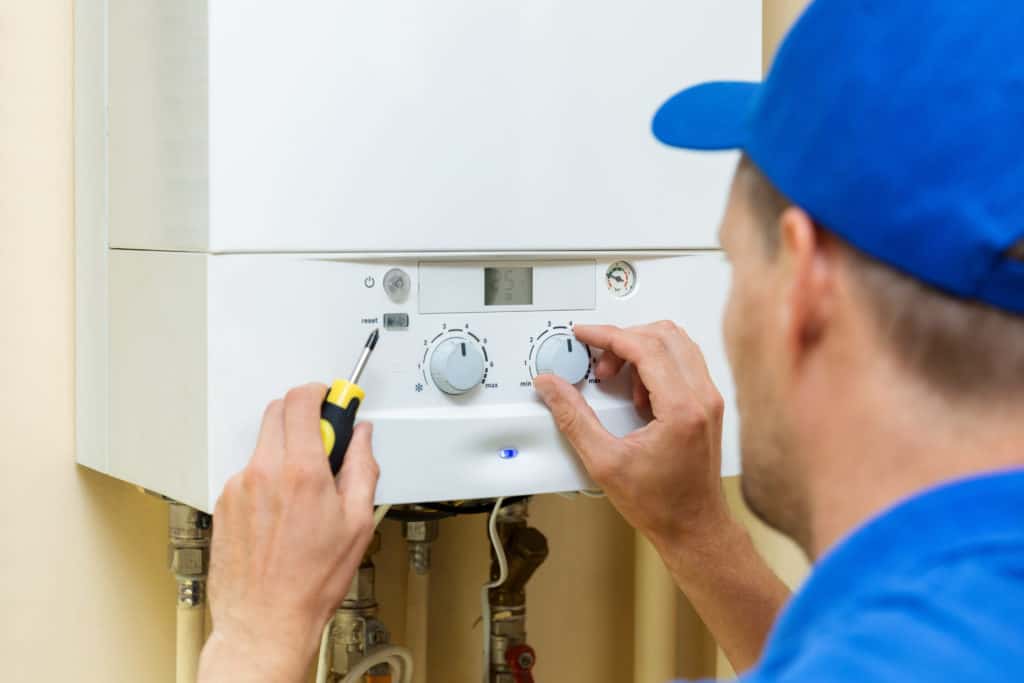Is your water heater on its last legs? If your unit has been in place for more than 12-15 years, you may be almost ready for a new one. And as you think about getting a new water heater, there are a few basic decisions you’ll need to make. One of the most fundamental decisions is whether to spring for a tankless water heater.
Basically, there are two options when it comes to hot water heaters. The traditional tank type heats many gallons of water and then holds them in supply, ready for use whenever you need it. Tankless units heat your water on demand; true to their name, they don’t have a supply tank.
So which option makes the most sense for you and your family? When thinking about getting a tankless unit versus a more conventional one, there are a number of pros and cons to consider.

The Pros of Getting a Tankless Water Heater
Let’s start with the positives. What are some of the primary reasons to consider getting a tankless water heater? Some of the advantages include:
- A tankless water heater will be more energy efficient: Tankless water heaters work entirely on demand. What this means is that your unit will only heat water when you run the shower or turn on the faucet. By contrast, a tank unit requires ongoing heating throughout the day. The upshot: A tankless water heater can help you save a lot of money on your utility bill.
- Tankless water heaters last much longer: In fact, the average lifespan of a tankless water heater is twice that of a conventional unit. A heater with a tank may cease working within 12 or 15 years. The tankless unit will hold up much better for much longer.
- A tankless water heater requires less space:Because they don’t need a massive storage tank, tankless water heaters use up much less space in your home, basement, or garage.
- When you go tankless, you have unlimited hot water whenever you need it:With an on-demand unit, you’ll have as much hot water as you need within seconds.
- A tankless hot water heater will allow you to run multiple showers or appliances at once:Looking to have a shower, run the dishwasher, and do a load of laundry at the same time? No problem. Tankless water heaters will allow you to do all of this and more without worrying about the hot water running out.
These are just a few of the of the advantages of tankless water heaters.

The Cons of Getting a Tankless Water Heater
Now that we’ve covered the advantages, let’s focus on some of the drawbacks. Here are a few important disadvantages of tankless water heaters.
- They tend to be more expensive:Generally speaking, water heaters without a tank will cost you more money on the front end. Indeed, if you’re looking for a new hot water heater on a tight budget, this may not be the option for you. However, we would note that tankless water heaters can save you money over the long haul, both because of the energy savings and because of their longer shelf life.
- Sometimes, installation is a little more complicated: Depending on your home plumbing setup and how much retrofitting is required, installing tankless water heaters can sometimes take longer and require more work. This can vary from one home to the next.
- Tankless water heaters don’t work as well for larger homes: How many bathrooms do you have? And how many people live with you? If your home has three bathrooms or fewer, tankless water heaters work wonders. For really large homes, however, you may run into energy output problems. For really big homes with many bathrooms, multiple tankless water heaters may be required.
These are just a few disadvantages to keep in mind as you think about heaters tankless and otherwise.

Making the Right Decision About Your Hot Water Heater
To recap, what are the advantages and disadvantages of a tankless water heater? And, what are some of the factors you should consider as you shop for a new unit?
- A conventional hot water heater will last 20 years at the most. Water heaters without tanks will last considerably longer.
- In terms of energy consumption and hot water per minute, water heaters without tanks are much more efficient.
- However, it’s not right to say that a tankless hot water unit will never run out of water. In larger homes with many bathrooms, there can be some issues or limitations.
- Most water heaters without tanks run on gas. Electric models are available, but they are a lot pricier.
- Because they help you save space and make more efficient use of water, tankless models are better bets overall. However, these units may not be viable options for everyone.
As you consider the different kinds of hot water units that are available, we invite you to contact Carter’s My Plumber. We’ll evaluate your water heating needs and show you some units that we can recommend. Our plumbing experts have ample experience consulting on water heating needs, and we can also provide fast and affordable water heater installation.
Reach out to Carter’s My Plumber with any additional water heater questions or needs.



